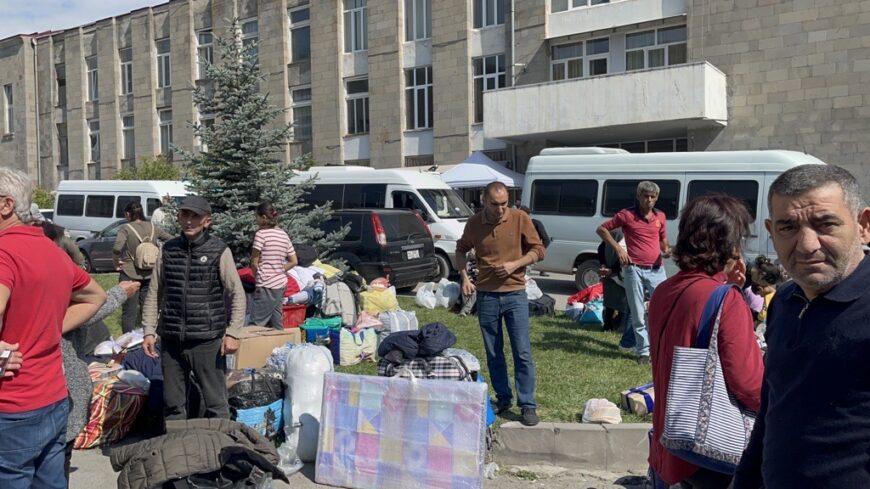Following the military operation in Nagorno-Karabakh on September 19, almost all residents of the region fled to Armenia via the Latchin corridor, the sole route between Nagorno-Karabakh and Armenia. As of October 6, it is estimated that over 100,000 people have crossed the border from the region into Armenia.
These people, often among the most vulnerable (women, children, the elderly), have spent months under siege, without access to basic goods and services such as food or medical care. They had to leave their homes overnight. Acted's teams mobilised from day one to bring them much needed support.
A wide range of needs for refugees
The people living in Nagorno-Karabakh, who had been gradually rebuilding their lives since the terrible fighting and destruction of 2020, have had to leave their homes in a hurry, finding themselves in a very precarious situation, with no housing, no land and no access to hygiene, health or education. Added to this is the psychological distress caused by the traumatic events they have experienced.
I was myself for several days in Goris, close to the Latchin corridor, to see the extent of the needs and the great distress of the displaced populations of Nagorno-Karabakh. We need everyone's solidarity to come to their aid quickly. Short and long-term assistance will be needed.
Our mobilisation
The challenges facing people from Nagorno-Karabakh are many. In the early days following the first arrivals in Armenia, Acted carried out assessments in Goris, Sisian, Tegh, Vayk, and Yeghegnadzor.
Among the most important needs is financial assistance to allow families to buy essential food, hygiene, and household items, safe and secure shelter, and psychological support.

Working closely with local authorities and organisations, Acted is currently doing its utmost to ensure that its activities benefit the most precarious and vulnerable displaced people, i.e. the elderly, single-parent families, people with disabilities, and pregnant or breastfeeding women.
One of Acted’s first activity will be the distribution of multi-purpose vouchers for displaced people to redeem at local supermarkets. As such, conflict-affected persons will be able to choose the items they want according to the needs they identify as priorities.
Acted can also count on the support of the Ministry of Foreign Affairs’ Crisis and Support Center, which is funding an operation to support access to food, hygiene and telecommunications services for displaced populations, in order to facilitate their integration in Armenia.
Helping local authorities in welcoming refugees
Acted is also planning to strengthen the capacity of structures that welcome victims of the conflict and to provide localities with equipment to offer better services to displaced populations. This may include furniture or computer equipment to ensure faster registration of refugees. The equipment supplied will then be distributed between sites according to population movements.